




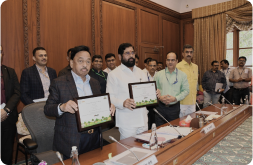

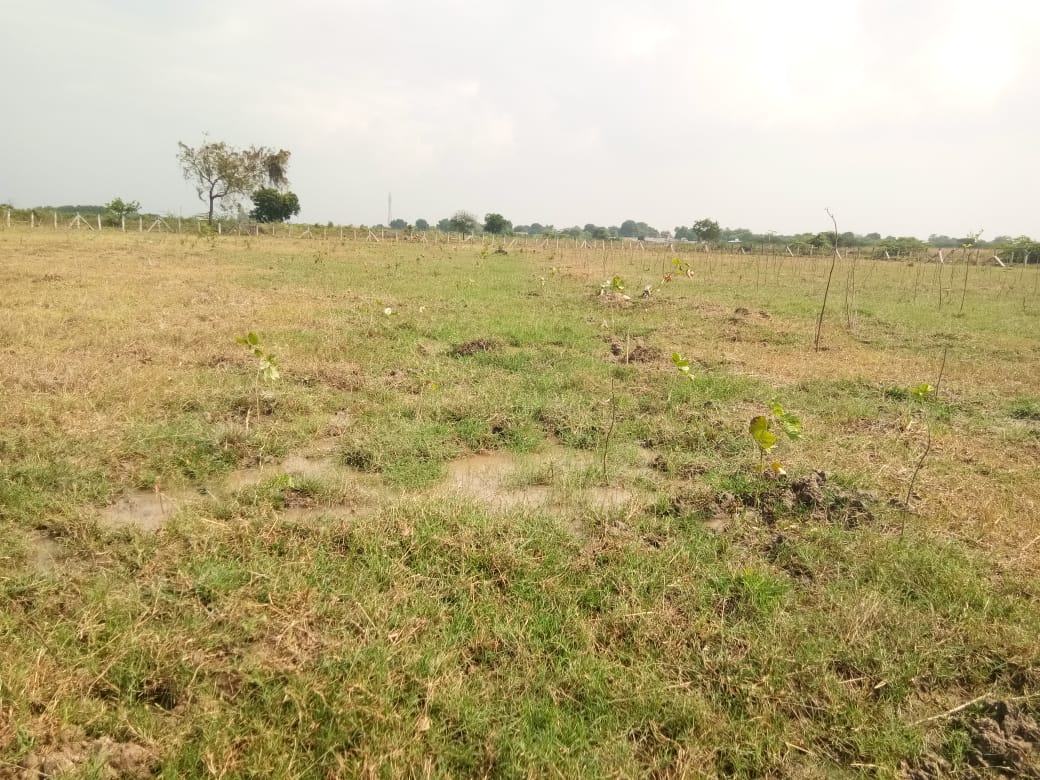
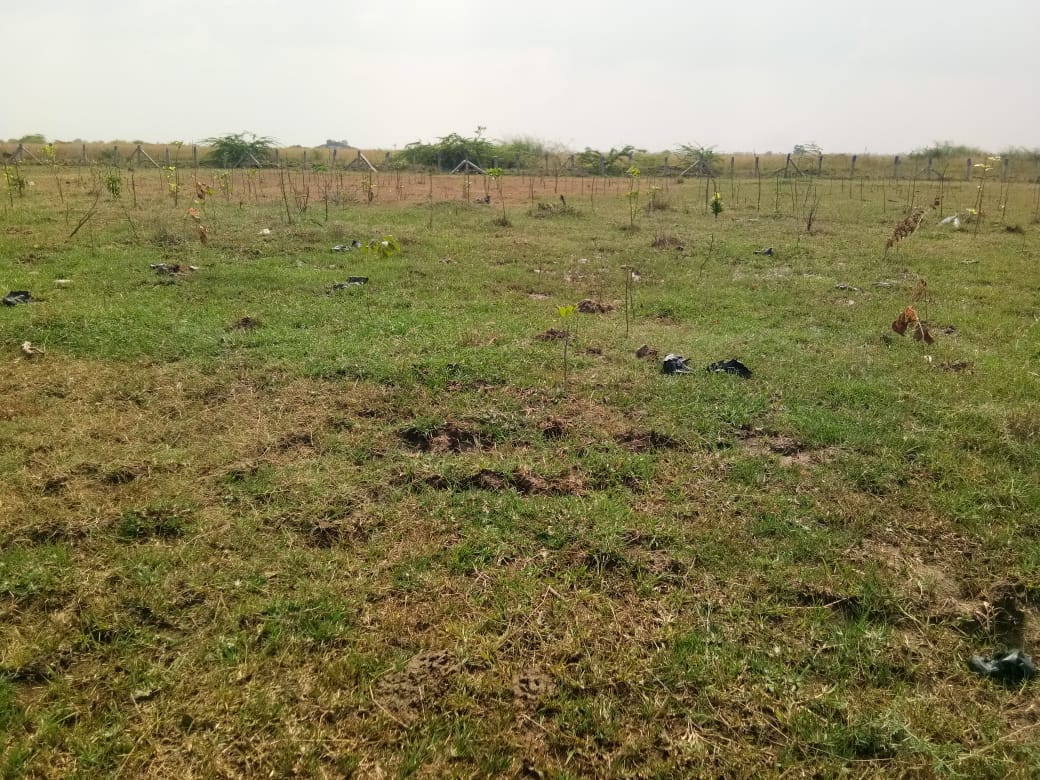
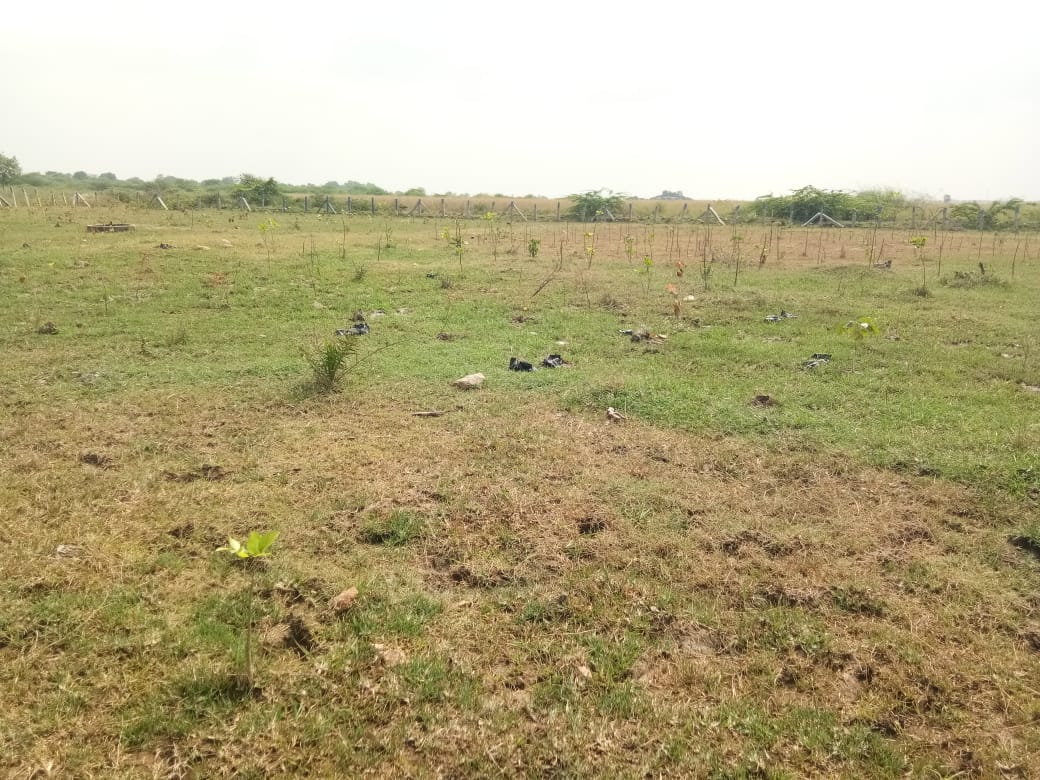
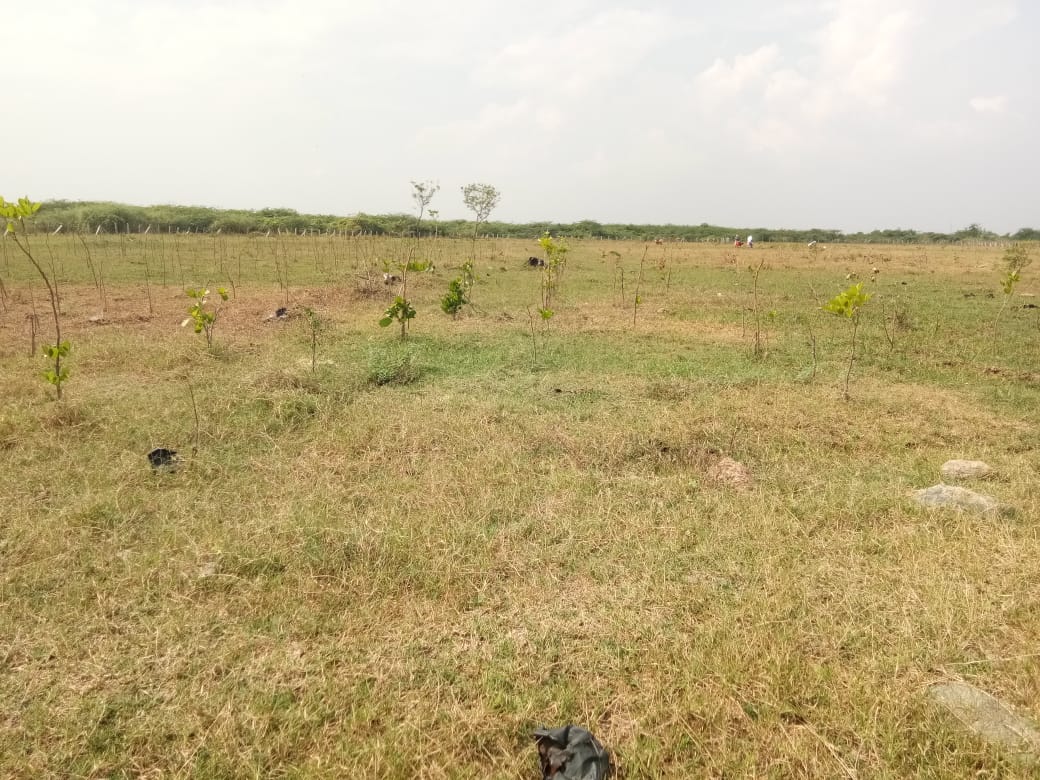
Project Target
0% Remaining
30,000
Trees Planted out of 30,000 Trees

Project Location:
In FY 2023-24, we had planted 30,000 trees in the Kokkireni Village in Thirumalayapalem Mandal in Khammam district of Telangana, India.
Project Aim
SDG
Why Trees?
Our ecosystem functions like a carefully woven web; organisms are dependent both on their environmental interactions with other living things as well as non-living factors. In a healthy ecosystem, multiple species of different types are able to meet their needs. However, due to large-scale deforestation and land degradation, we are disturbing this delicate thread of interconnectedness.
This plantation area in Kokkireni has been home to many indigenous plants and animal species. However, the absence of a well-defined and structured land use plan has inflicted significant damage upon the local biodiversity. The encroachment of human activities onto this land, primarily motivated by agricultural pursuits, has exerted considerable pressure on the local species, compelling them to seek alternative habitats.
For an ecosystem to function effectively, we need every organism to play their part. For instance, birds are essential to maintain a healthy agricultural landscape. Birds help farmers by preying over insect pests that attack their crops, as well as pollinate their flowers. Amongst these are birds like myna, babbler, woodpecker, barbet, munia, sparrows and drongos. Reptiles, insects and smaller mammals like civet cat, squirrel and hare are also victims of displacement. By expanding green cover and restoring biodiversity, we are not only creating space for these species to thrive but this will also lead to a healthier environment for the communities in the area.
According to the International Journal, New Forests, "Tree plantation holds significant potential in tackling the environmental challenges confronting the communities of Telangana. These challenges include deforestation, biodiversity loss, and the impacts of climate change. Tree plantation initiatives have emerged as a recognised and valuable strategy to address these pressing issues. Not only do they contribute to global environmental sustainability, but they also offer a multitude of benefits at the local level."[1]
In addition to the environmental benefits, the plantation can provide an additional livelihood resource to the local villagers as well. This is crucial as the majority of the population in Kokkireni village are dependent on agriculture or labour work for their livelihoods.
Tree Species
The tree species selected for this project are local to the area and hold not only ecological but also economic value. Fruits of plants like Naval/Jamun (Syzygium cumini), Amla (Phyllanthus emblica), Tamarind (Tamarindus indica) can not only be consumed, but also commercially benefit the villagers. Dirisens/Indian siris (Albizia lebbeck), Devakanchans/Purple bauhinia (Bauhinia purpurea), Neem (Azadirachta indica) has medicinal properties and can be useful in treating various ailments.[2][3][4] Kanuga/Pongame tree (Pongamia glabra) is a good source of bio-oil and has multiple commercial purposes[5].
Social Impact
Due to limited employment opportunities, the majority of Kokkireni village's residents are compelled to seek labour opportunities in distant locations. Even those engaged in agricultural practices struggle to meet their basic needs. Hence, our plantation activity plays a pivotal role in generating viable employment prospects for the local community, helping them make their ends meet. We also have an inclusive policy and work with women plantation workers as well, empowering them to play an active role in supporting their families. Moreover, the non-timber produce generated from these plantations will offer an essential supplementary source of livelihood for the villagers. This goes a long way towards the holistic well-being of the communities.
Adoption Summary
|
Name of the Company |
Number of Trees Planted |
Fiscal Year |
|
Bosch |
15,000 |
2023-24 |
|
Covalent Laboratories Pvt. Ltd. |
7,500 |
2023-24 |
[1] Suryaningrum, F., Jarvis, R., Buckley, H., Hall, D., & Case, B. (2021). Large-scale tree planting initiatives as an opportunity to derive carbon and biodiversity co-benefits: a case study from aotearoa new zealand. New Forests, 53(4), 589-602.
[2] Kumar, S., Kumar, R., Gupta, Y. K., & Singh, S. (2019). In vivo anti-arthritic activity of Bauhinia purpurea Linn. Bark Extract. Indian journal of pharmacology, 51(1), 25.
[3] Babu, N. P., Pandikumar, P., & Ignacimuthu, S. (2009). Anti-inflammatory activity of Albizia lebbeck Benth., an ethnomedicinal plant, in acute and chronic animal models of inflammation. Journal of ethnopharmacology, 125(2), 356-360.
[4] Islas, J. F., Acosta, E., Zuca, G., Delgado-Gallegos, J. L., Moreno-Treviño, M. G., Escalante, B., & Moreno-Cuevas, J. E. (2020). An overview of Neem (Azadirachta indica) and its potential impact on health. Journal of Functional Foods, 74, 104171.
[5] Kesari, V., & Rangan, L. (2010). Development of Pongamia pinnata as an alternative biofuel crop — current status and scope of plantations in India. Journal of Crop Science and Biotechnology, 13, 127-137.
Social Impact of Growing Trees
Community Engagement
Tree planting initiatives often involve local communities, which can lead to greater community cohesion.
Ecological Education
Provides opportunities for community members, especially children, about the importance of environmental sustainability.
Urban Beautification
Trees contribute to the aesthetic enhancement of urban areas, making cities more pleasant and liveable.
Climate Resilience
By improving green cover, tree planting helps make communities more resilient against climate impacts like heatwaves.
Employment Creation
Planting trees creates employment for local community members like planting and maintenance, administrative roles, and more long-term jobs in management.
Wildlife Habitat
Trees provide critical habitats for various species of wildlife. Enhancing tree cover helps preserve biodiversity, which can be an ecological boon for local communities
Copyrights @ 2025 All rights reserved by Pangea EcoNetAssets Pvt Ltd.